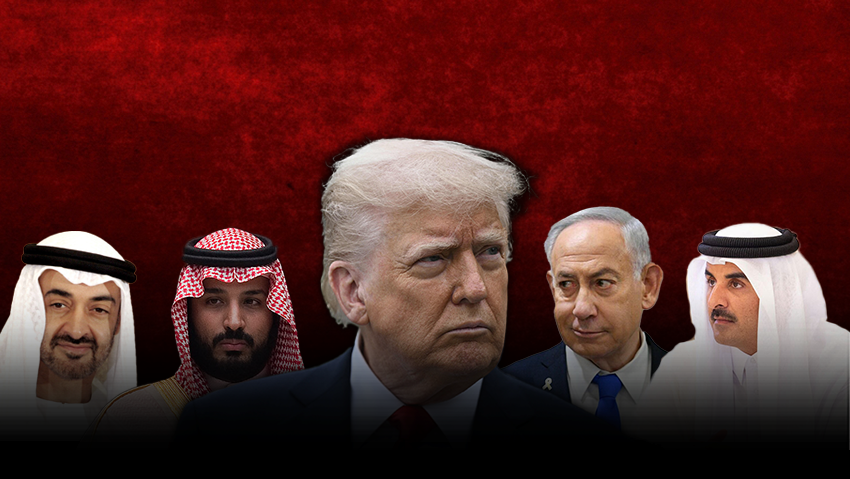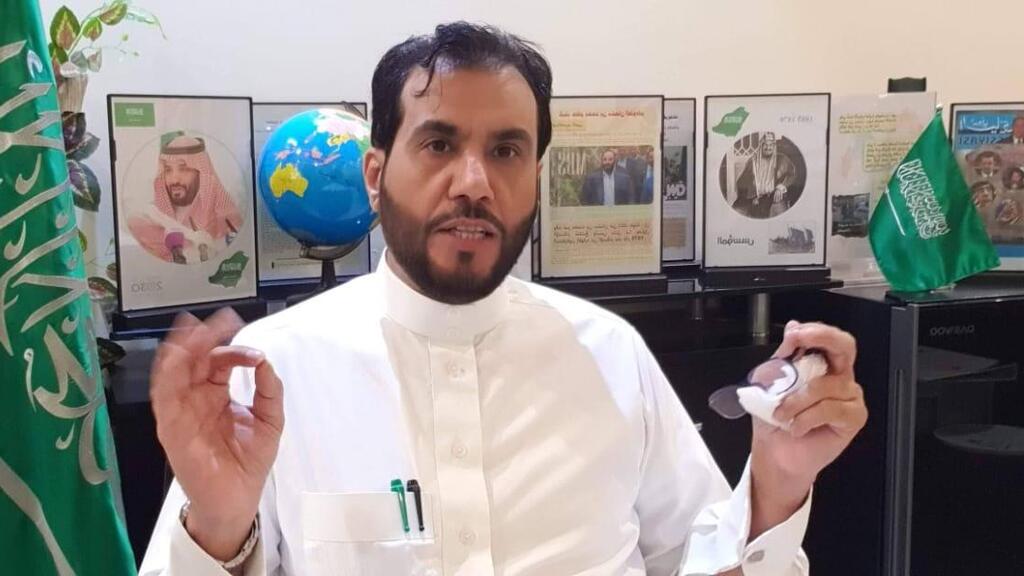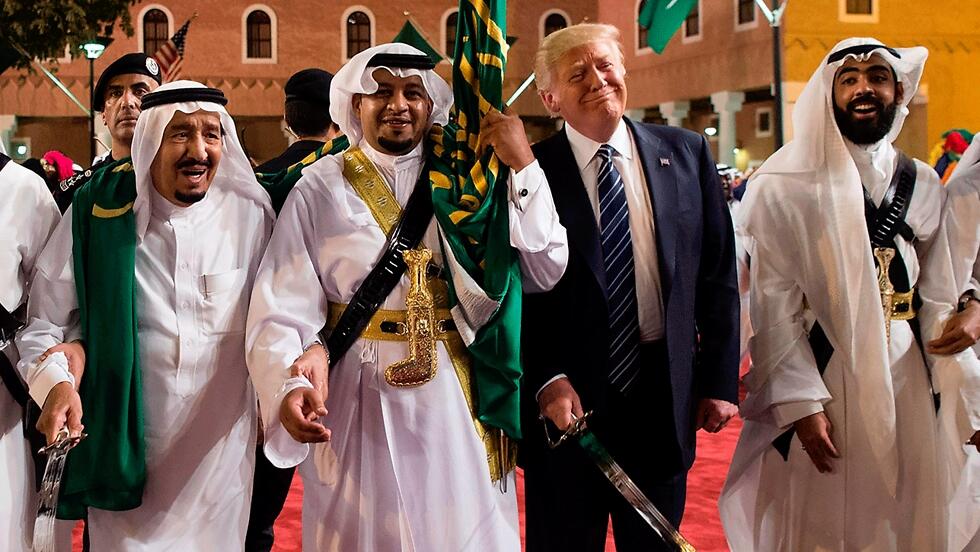Getting your Trinity Audio player ready...
U.S. President Donald Trump is set to visit the Middle East on Monday, marking his second foreign trip this term.
The visit comes at a tense moment: direct talks with Iran are underway, the U.S. brokered a deal with the Houthis without informing Israel and Washington reportedly dropped its previous condition tying Saudi Arabia’s civilian nuclear program to normalization with Israel. Trump also recently ended direct negotiations with Hamas that collapsed into failure.
3 View gallery


U.S. President Donald Trump's visit to the region isn't leaving Israel hopeful
(Photo: shutterstock, Getty Images, Reuters, Reuven Castro)
Despite the tensions, Israeli officials insist behind-the-scenes coordination with the Trump administration remains close, with no real policy rift. Strategic Affairs Minister Ron Dermer — Prime Minister Benjamin Netanyahu's close confidant — met with Trump at the White House for a work meeting.
While Trump often delivers dramatic announcements during foreign visits, Israeli officials don't expect groundbreaking statements regarding Israel during this trip. Israel isn’t expected to be a central topic in Trump’s meetings. Still, Trump is known for his unpredictability and could offer surprise remarks at any point.
No nuclear-for-normalization link
Israeli officials believe Trump’s upcoming stop in Qatar won’t result in a breakthrough hostage deal based on the “Wittkoff framework.” There had been speculation Trump might visit Israel if a deal were reached but officials now see that as unlikely within the current timeframe.
Contrary to reports in the U.S., Israel assesses that Trump won’t discuss Saudi Arabia’s civilian nuclear program during his visit there. The administration also appears to have dropped normalization with Israel as a precondition for such a deal.
According to a previous report, Trump no longer demands Saudi recognition of Israel in exchange for nuclear cooperation — a key condition insisted on by the previous Biden administration.
Trump's statement on deal with Yemen's Houthis
Riyadh’s view: sovereignty first
Speaking to Ynet, Saudi analyst Abd Al-Hamid Al-Ghabin said Trump’s shift stems from a broader U.S. realization about its changing role in the region. “For more than three decades, Riyadh has resisted U.S. efforts to tie its cooperation to normalization with Israel, without real solutions for the Palestinian issue,” he said.
Get the Ynetnews app on your smartphone: Google Play: https://bit.ly/4eJ37pE | Apple App Store: https://bit.ly/3ZL7iNv
Al-Ghabin added that Saudi moves to deepen ties with China, Russia and European nations on nuclear technology reflect a clear message: national sovereignty and strategic interests are non-negotiable.
"Riyadh understood that accepting Washington's normalization terms would compromise its core principles. The U.S. retreat wasn’t tactical — it was an implicit recognition of its declining regional influence and a failure to impose conditional political will on historic allies."
He noted that Saudi Arabia aims to build independent capabilities in nuclear energy, including uranium enrichment for commercial purposes, as part of its Vision 2030 plan. “The project reflects a political vision for national decision-making independence. Sovereign nations don’t surrender easily to superpower dictates—they retain strategic flexibility based on their interests.”
Trump focuses on economic deals, not regional conflict
Trump’s main goal this week is economic: securing investment deals favorable to the U.S. economy. He’ll visit Saudi Arabia, the UAE and Qatar—three wealthy Gulf states—but will skip Egypt and Jordan, both long-standing U.S. partners and neighbors of Israel, which are considered irrelevant to this specific trip.
On Saturday, the U.S. announced that Defense Secretary Pete Hegseth canceled his planned trip to Israel to join Trump in the Gulf. Israeli officials said they understood the cancellation, noting that Trump wants his top cabinet members with him. Hegseth reportedly assured Israel he’d visit at a later date.
Officials in Jerusalem are also downplaying recent Wall Street Journal reports of Trump’s “frustration” with the length of the war in Gaza, in which he reportedly said Israel could be fighting “for a thousand years.” The prevailing view in Israel is that Trump still wants Hamas defeated—an objective the IDF remains committed to.
A battle for prestige in the Gulf
Trump campaigned on bringing peace to the Middle East but that goal is proving more elusive than expected. During the visit, he’s expected to unveil pledges from Saudi Arabia to invest $600 billion in the U.S. over four years, and from the UAE to invest $1.4 trillion over 10 years.
Analysts in the U.S. describe the trip as a prestige contest among the Gulf nations, each trying to outdo the others with major investment deals and lavish receptions. A repeat of Trump’s famed “sword dance” from his first-term visit to Saudi Arabia is likely.
“This visit will reaffirm President Trump’s enduring vision for a proud, prosperous and successful Middle East—one where the U.S. and regional partners work together and extremism is replaced with trade and cultural exchange,” said White House spokesperson Karoline Leavitt.
Former U.S. envoy Dennis Ross predicted Saudi Arabia wouldn’t engage with the Abraham Accords or normalization with Israel during the visit due to the war in Gaza.
“Mohammed bin Salman is likely to say the situation is too toxic for such discussions,” Ross said. “Trump doesn’t have many wins to show right now, so he’ll want to frame this trip around what he’s delivering for the American people.”







